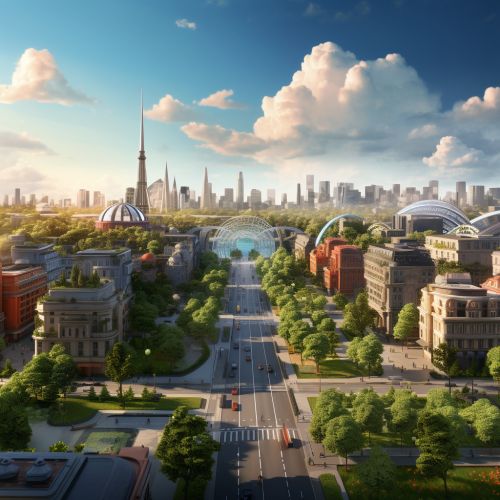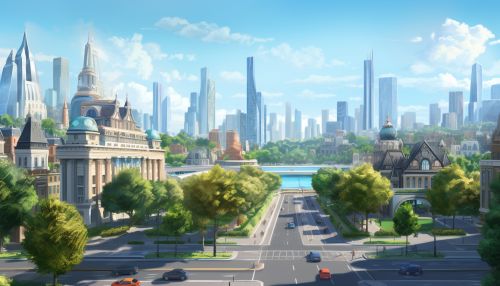Urban and Regional Planning
Introduction
Urban and regional planning is a design and technical profession concerned with the development and use of land, protection and use of the environment, public welfare, and the design of the urban environment, including air, water, and the infrastructure passing into and out of urban areas, such as transportation, communications, and distribution networks. Urban and regional planners are responsible for developing plans and programs for use of land that create communities, accommodate growth, or revitalize physical facilities in towns, cities, counties, and metropolitan areas.


History of Urban and Regional Planning
The history of urban and regional planning is a history of the methods and approaches used in the field of urban planning. This field has origins in the movement for urban reform that arose as a reaction against the disorder of the industrial city in the mid-19th century. Urban planning exists in various forms and it can be perceived as a broad category which includes various disciplines such as: urban, city, or town planning, regional planning, environmental planning, transportation planning, and so on.
Theoretical Perspectives in Urban and Regional Planning
Urban and regional planning theories have significantly evolved since their establishment in the 18th century. They have varied from the early focus on design aesthetics and the physical layout of cities to the more comprehensive approach of modern planning. Modern urban and regional planning can be divided into several major theoretical schools, including the rational-comprehensive approach, incrementalism, the communicative approach, and postmodernism.
Urban and Regional Planning Practice
Urban and regional planning practice involves a variety of processes and techniques. It includes strategic planning, land use planning, transport planning, and environmental planning. Each of these areas involves different methods and approaches, and they often intersect in practice. For example, land use planning often involves considerations of transport, while environmental planning can impact and be impacted by nearly all other areas of planning.
Challenges in Urban and Regional Planning
Urban and regional planning faces numerous challenges in the modern world. These include managing urban growth and development, ensuring the sustainability of cities and regions, dealing with the impacts of climate change, and addressing social inequality and poverty. Each of these challenges requires different approaches and solutions, and they often require the integration of multiple areas of planning.
Future of Urban and Regional Planning
The future of urban and regional planning is likely to be shaped by a variety of factors. These include technological advancements, changes in societal values and norms, and global environmental changes. Planners will need to adapt to these changes and develop new approaches and techniques to effectively manage urban and regional development in the future.
